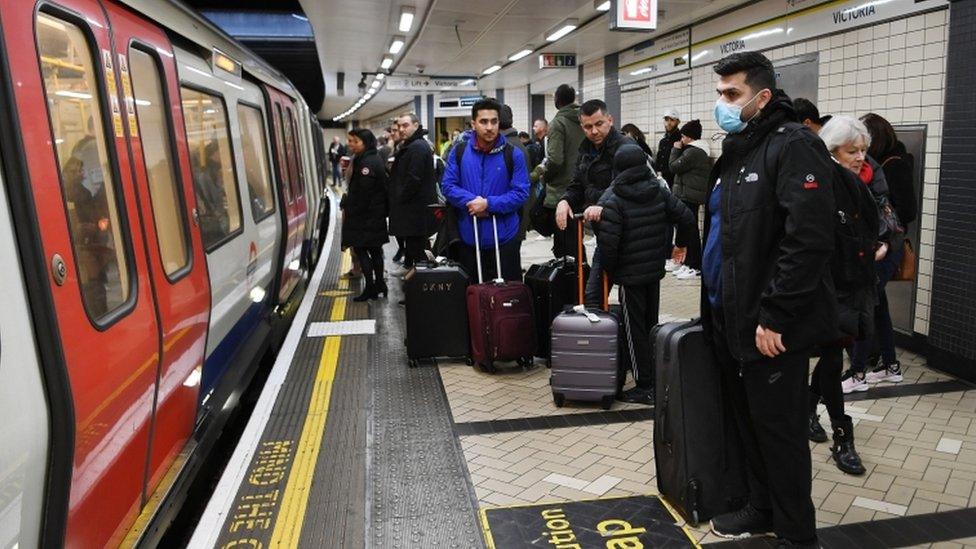Coronavirus: Underground empty as Londoners heed warnings
- Published
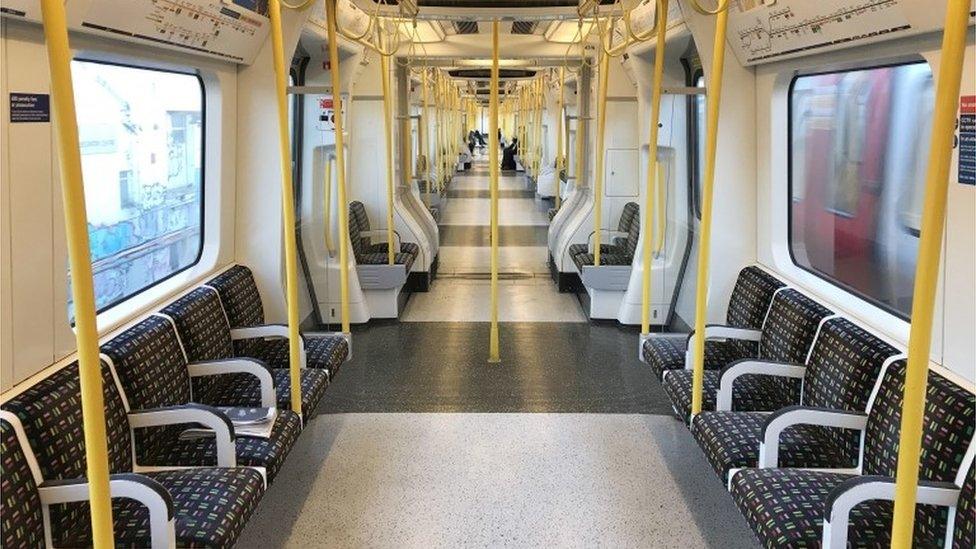
The London Underground is now operating a weekend service
Londoners are starting to avoid the Underground to try to stop the spread of coronavirus.
The government has asked people to work from home and avoid public places in a bid to slow transmission of the virus, which is rising more rapidly in the capital.
Pictures showed that many Tube lines were empty on Tuesday when they would have normally been full.
However, according to cameras the roads appeared to show normal traffic levels.
BBC London's travel reporter Rob Oxley said: "Two usual indicators of how busy London traffic is are the approach to the Blackwall Tunnel and the A13 through Dagenham - both of which were as busy as a normal rush hour."
He added that he could still see a stream of people walking over London Bridge into the City.
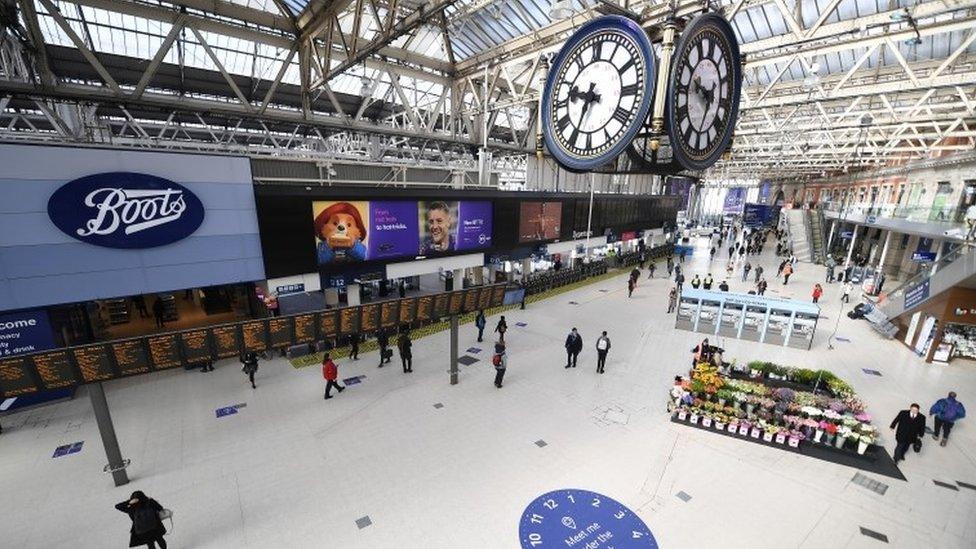
Waterloo - the UK's busiest train station - was eerily quiet earlier
"On some of the traffic cameras in central London, traffic levels don't look that different to a normal day," he said.
"There is a mix of traffic queuing on the Euston Road towards Kings Cross and still quite a bit of traffic on the North Circular past Wembley and on the A23 in Waddon, south London.
"However on the M4 spur road in to Heathrow Airport there is only a handful of cars."
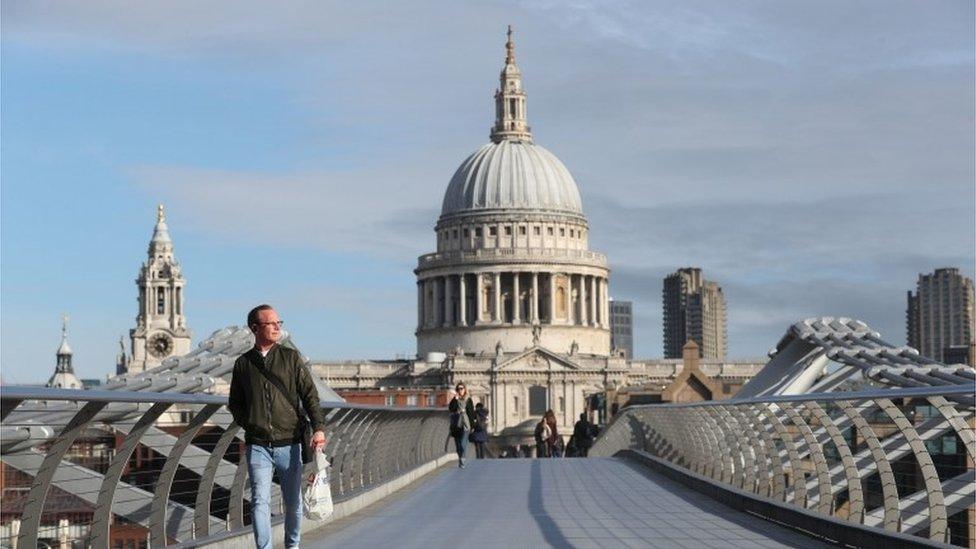
Millennium Bridge was almost empty
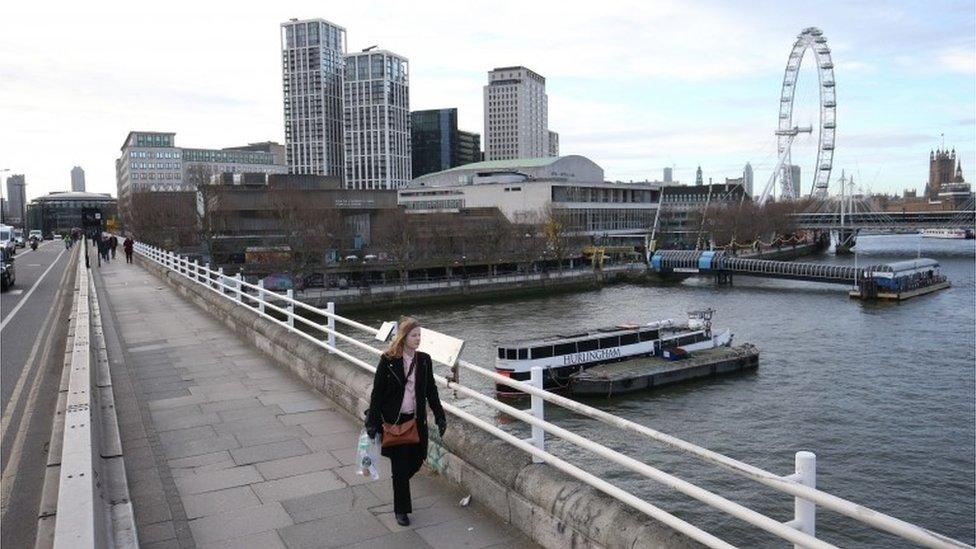
The view from Waterloo Bridge
As of Monday, London had 480 confirmed coronavirus cases. A total of 55 people have died in the UK, with 14 from London.
Mayor Sadiq Khan said public transport was included in the advice issued by the prime minister to avoid public gatherings.
Transport for London said it was enhancing its cleaning regime and using long-lasting disinfectant to help stop the virus spreading.
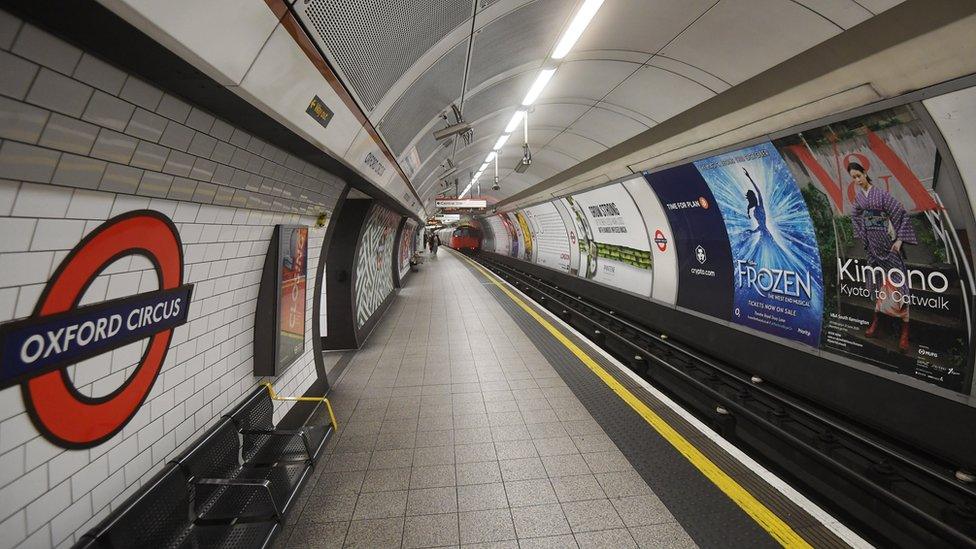
The normally busy Oxford Circus station was deserted
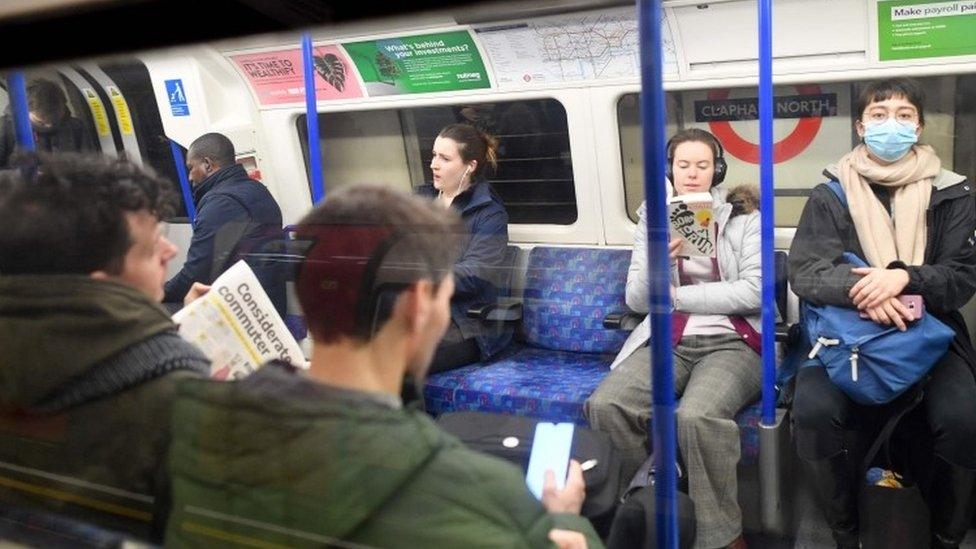
There were a few people commuting in from the outer boroughs
Mr Khan said public transport was running as normal on Tuesday but as demand goes down over the next few days, it would reduce to a weekend service during the week and run even less frequently at the weekend.
London's transport commissioner Mike Brown said: "We and our staff are doing everything we can to ensure that people who need to make essential journeys can continue to do so.
"Part of that involves matching service levels to the actual demand for travel. That work is under way and will evolve over time."
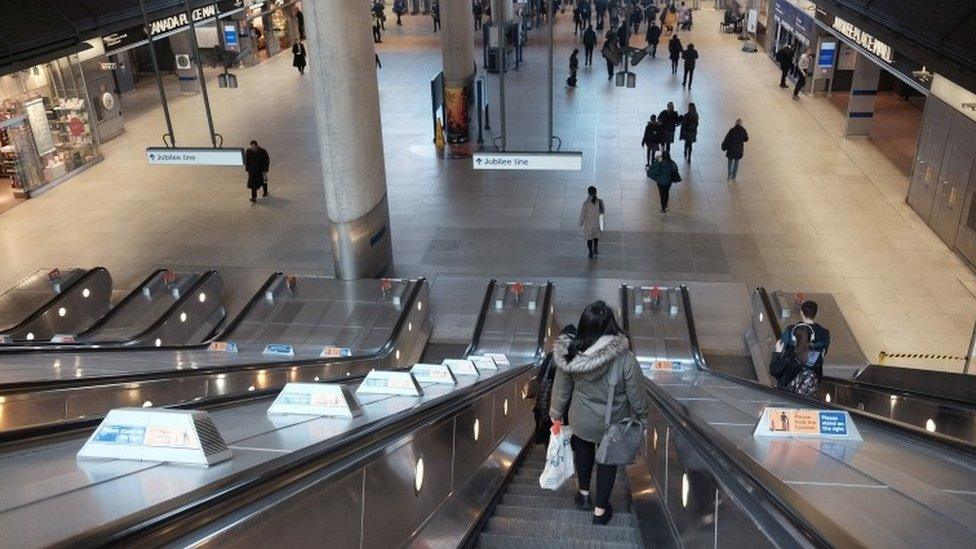
The concourse at Canary Wharf station was quiet
Many of the capital's museums have also closed in response to the government advice.
The BFI Southbank said it would close "immediately" while the Tate Modern and Tate Britain will close later until at least 1 May.
The British Museum remains open, with a spokesman saying it was awaiting further guidance from the government.
"The health and safety of our staff and visitors is our absolute priority," he added.
The Chelsea Flower Show in May has been cancelled by the Royal Horticultural Society, however RHS gardens will remain open for now.
Meanwhile Mr Khan cancelled all events in Trafalgar Square until further notice following the government's advice on large gatherings.
These include celebrations for St George's Day in April and Eid on 30 May.
Allow X content?
This article contains content provided by X. We ask for your permission before anything is loaded, as they may be using cookies and other technologies. You may want to read X’s cookie policy, external and privacy policy, external before accepting. To view this content choose ‘accept and continue’.

EASY STEPS: How to keep safe
A SIMPLE GUIDE: What are the symptoms?
GETTING READY: How prepared is the UK?
MAPS AND CHARTS: Visual guide to the outbreak
TRAVEL PLANS: What are your rights?
- Published17 March 2020
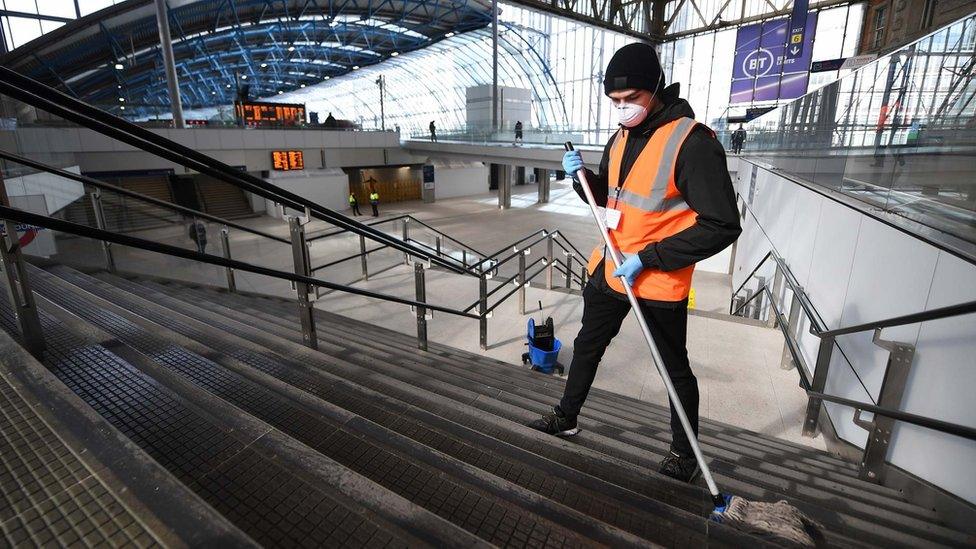
- Published16 March 2020
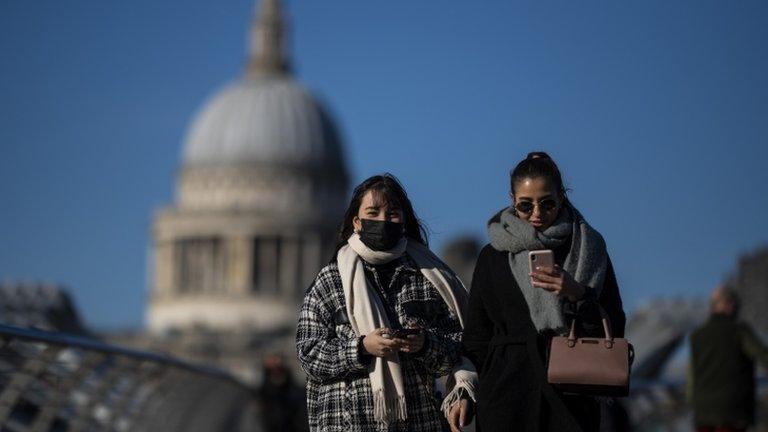
- Published16 March 2020
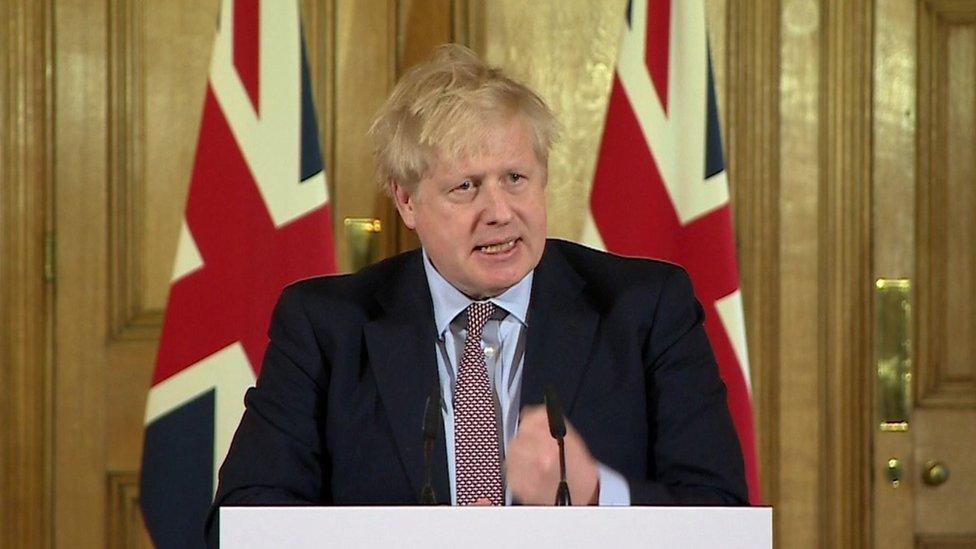
- Published13 March 2020
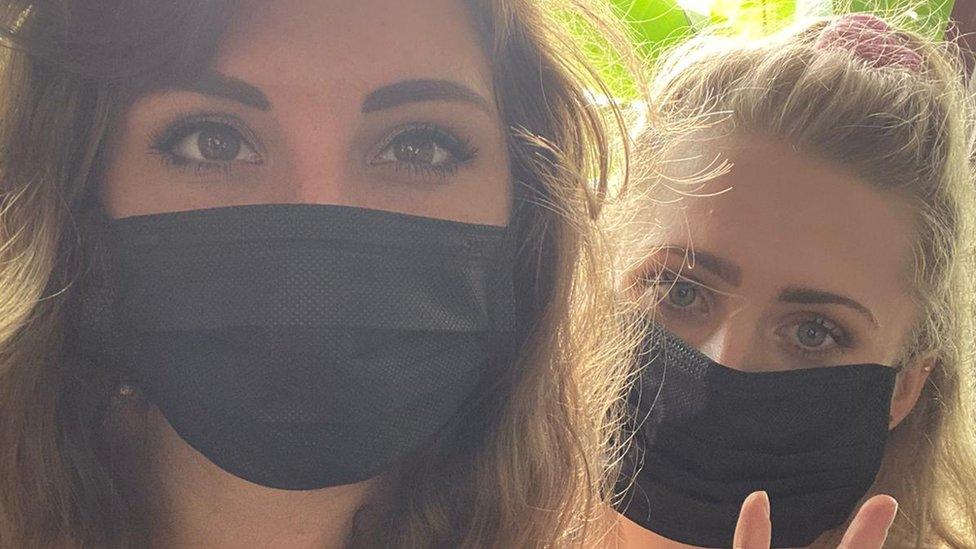
- Published16 March 2020
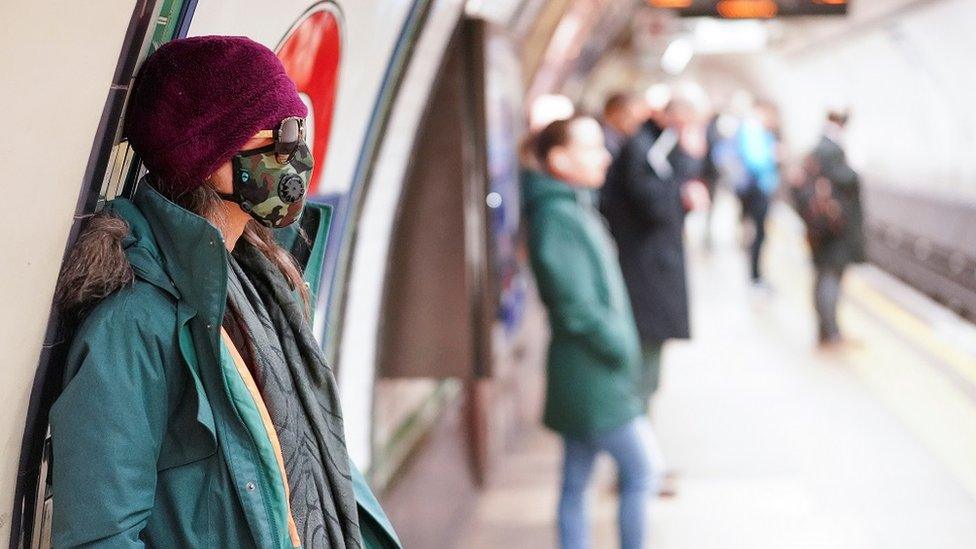
- Published13 March 2020
